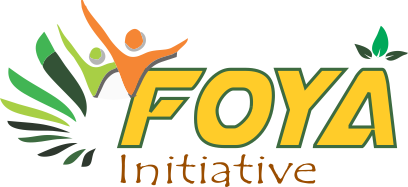Youth news
Platform for sharing what is trending aroung youth, young people.
Higher Education - Getting started
The choice of a career you will make after high school is among the most crucial ones you will ever make. Your income, way of life, level of enjoyment, and social effect may all be impacted.
What are the finest recommendations for selecting the profession that is ideal for you? Here are a few instances:
- Consider your interests and passions. By asking yourself the following questions, you can determine your preferences and strengths: What do you enjoy doing? How proficient are you? What do you value and want to achieve?
- Examine the market’s needs and the country’s in-demand capabilities. You should pick a profession where there is a strong demand for workers but a low supply. You’ll have more possibilities, higher income, and less competition if you do it this way.
- To find out which professions require qualified workers, consult internet tools.
- Acquire the skills necessary to operate a business independently. Not everyone needs to work or be employed. The workplace is evolving quickly; therefore, you need to be entrepreneurial and adaptable. You can launch your own company, work as a freelancer, or establish a social venture. You’ll have greater autonomy, creativity, and control over your work as a result. By generating jobs and finding solutions to issues, you will also benefit the economy and society.
- Consult experts and mentors for direction and advice. Be in the company of people who can advance your career and future opportunities. This choice does not have to be made by you alone.
- You can speak with individuals who are knowledgeable and experienced in the areas you are interested in. Online platforms are another way to get information, assessments, and career counselling.
It’s not simple, but it is feasible to choose a career after high school, as was previously indicated. Finding a career that matches your personality, talents, and objectives is possible if you use the advice in this article. By developing your career in a field that requires little talent, you can also increase your standard of living and that of your family.
I hope this aids in your decision-making on your ideal career. Keep in mind that this is a process that may require modifications and transitions over time rather than a choice made once. Be adaptable and receptive as you explore your options and pursue your goals.
Getting what you want in life takes planning
Getting what you want in life takes planning—whether it’s a trade certification, an overseas trip, that perfect job, or early retirement. Career planning can turn your dreams into reality.
Not so long ago, most people stayed in the same line of work for a lifetime. Back then, “career” was another word for “job.”
The world has changed. Today, your career is the sum of all your jobs, education, and life roles. Planning your career—and your life—is a work in progress. Knowing how to plan is an important skill.
Lifelong career planning means you’ll need to do certain things again and again as events unfold or you choose new directions. Each time you want to take a major step—applying to a post-secondary school, switching careers, starting a family—you should think about how this step will fit into your life plan.
The Benefits of career planning
Planning your future works because:
- You’re in better control of getting what you want out of life.
- You can make your vision of life become real.
- Picturing your goals can motivate you and keep you focused and organized.
- Sometimes you need to do things in a certain order, so it’s important to set goals and know where to start.
Article 4
Creating your support network
Article 5
Walking your talk
Ask A Question
CareerFix: Questions are the root of all answers.
Don’t Be Shy!
